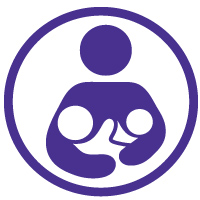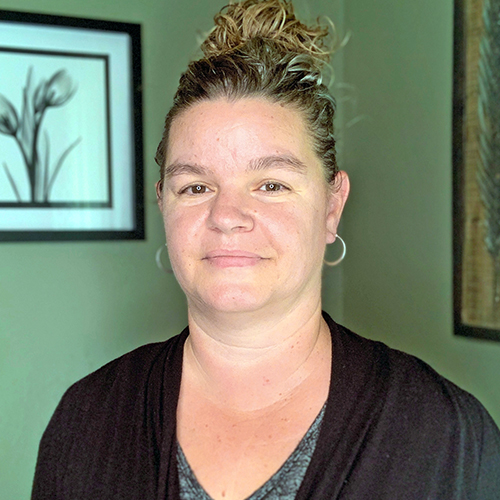 IBCLC Detailed Content Outline: Clinical Skills / Public Health and Advocacy Focused CERPs - Section VII E
IBCLC Detailed Content Outline: Clinical Skills / Public Health and Advocacy Focused CERPs - Section VII E
Access CERPs on Clinical Skills / Public Health and Advocacy for the IBCLC Detailed Content Outline recertification requirements. On-demand viewing of the latest Clinical Skills / Public Health and Advocacy focused IBCLC CERPs at your own pace.
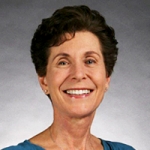
Seven Neuroprotective Core Measures: A Model for Implementing Family-Centered Developmental Care in the NICU

After raising three children as a stay-at-home mother, Dr. Phillips received a Masters degree in Developmental Psychology, became NIDCAP certified as an Infant Developmental Specialist, and then attended medical school at University of California, Davis, graduating in 2004. She completed her pediatric residency and neonatology fellowship at Loma Linda University Children's Hospital in Loma Linda, CA and is currently an attending neonatologist in the NICU at the same hospital as well as Co-Medical Director of Newborn Nursery at Loma Linda University Medical Center-Murrieta. Dr. Phillips is an International Board Certified Lactation Consultant and is a Fellow of the Academy of Breastfeeding Medicine. She is the immediate past president of the National Perinatal Association. Her primary areas of interest are mother-infant attachment, breastfeeding education and support, and Family-Centered Neuroprotective Care of premature infants in the NICU.
There is ample evidence that Family-Centered Developmental Care in the NICU results in improved neonatal and neurodevelopmental outcomes, increased family satisfaction and even enhanced employee satisfaction once the culture change has been accomplished. However, implementing the known principles of Family-Centered Developmental Care in the NICU to create those culture changes has long been a challenge. Several models of implementing developmental care have been tried and met with varying challenges and degrees of success. The Seven Neuroprotective Core Measures of Family-Centered Developmental Care in the Neonatal Integrative Developmental Care Model has been trialed in our NICU for the past three years and has proven to be effective as a tool to bring about staff buy-in and engagement in the process of implementing Family-Centered Developmental Care principles into the culture of our NICU.

View Details / Enroll

Successes and Opportunities for Growth in Baby Friendly Hospital & Baby Tent Initiatives in Haiti: A Literature Review

Marcda Hilaire immigrated from Haiti to the United States in 1995. At a very young age, she served as a trainee in the biomedical program now known as the STEM PREP program. She received a Bachelor’s in Biology from Temple University and a Master’s in Public Health with a concentration in Maternal & Child Health from University of South Florida. Having worked in breastfeeding since 2012, Ms. Hilaire recently earned her IBCLC in June 2017. Ms. Hilaire currently serves as a breastfeeding coordinator in Palm Beach County, is a member of the Palm Beach County Breastfeeding Coalition and corresponding secretary for the Florida Breastfeeding Coalition. She serves as a member of the Health Ministry at Philadelphia Church of the Newborns. Ms. Hilaire and her husband have two children, one of whom is a currently breastfeeding 9 month old. She enjoys poetry, singing, and writing.
Background: According to the World Health Organization, suboptimal breastfeeding contributes to 1.45 million deaths in developing countries. Haiti, the first black Republic has had various initiatives to promote breastfeeding. While 97% of Haitian-born neonates are ever breastfed (Ministry of Public Health, 2013), initiation within the first hour of birth is only slightly more than half (46.7% in 2008-2012, MIH). Exclusive breastfeeding for 6 months was 39.7% (2008-2012 data in MIH).Various initiatives have been implemented to promote breastfeeding in Haiti.
Objectives: The purpose of this presentation is to analyze and evaluate the implementation of baby tents and baby friendly hospitals in Haiti through a literature review.
Findings: The literature has a limited scope of methodical research for these initiatives. Baby tents increased exclusive breastfeeding through psychosocial support, breastfeeding counseling, and nutrition training of health professionals. Baby Friendly hospitals have increased breastfeeding initiation but have limited recertification status. The literature indicates a sustainability and supportive infrastructure which is feasible through global partnerships, culturally appropriate trainings for health professionals, and fostering peer-to-peer support.

View Details / Enroll

View Details / Enroll
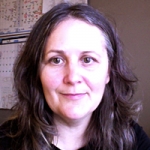

Tina Revai came to breastfeeding professionally in her practice working with families as a nurse of 25 years. However, once becoming a mother, her understanding of breastfeeding as an important factor in the feeling of success (or not) in parental role transition became experientially apparent. In order to support others towards self-defined breastfeeding success, Tina became a La Leche League Leader in 2006 and an IBCLC in 2007. She is currently co-president of the British Columbia Lactation Consultants Association and continues to work directly with families in her community of Port Alberni, on beautiful Vancouver Island, Canada.
The Relational Breastfeeding Framework is a process driven model for clinical breastfeeding supports that is consistent with the origins of the IBCLC profession. Little has been published that theorizes pragmatically about lactation support, bridging both the instrumental and relational aspects of this work. The introduction of this framework is an important contribution to theory development within the profession in that it unravels the complexity of reflective and dyad centered care, making clear the process for those who seek to practice in this way. This presentation makes the case that relational breastfeeding support is consistent with the underlying philosophy and history of the profession and should be the goal of all lactation consultants. However, equally relevant, another purpose to this presentation is to spark a generative debate about what we do and how we do it.

View Details / Enroll
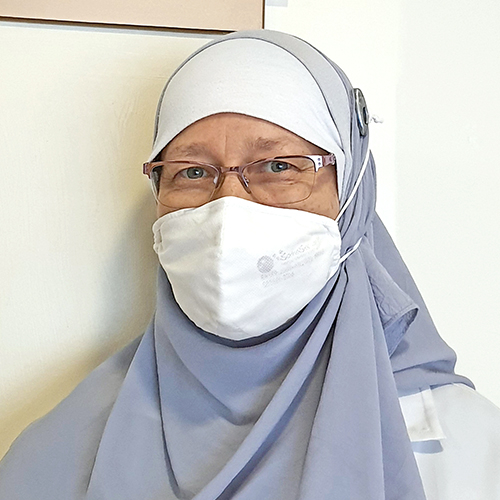
The Sharjah Baby-Friendly Campaign: A Community-Based Model for Breastfeeding Promotion, Protection and Support

Evelyne Ruf is a family physician from France, and an International Board Lactation Consultant (since 1993). More than 25 years ago, she shifted to the United Arab Emirates (UAE), working for the Ministry of Health, in Sharjah MCH Center. She opened there the first Lactation Clinic in the UAE, with the support of volunteers from Breastfeeding Friends (BFF), which she had co-founded.
Five years ago, the Lactation Clinic has been shifted to the Family Health Promotion Center, where it continues to offer, to a very cosmopolitan population, skilled lactation support as well as assessment and release of tethered oral tissues.
A member of the National Breastfeeding Committee, Evelyne has been involved in the Baby-Friendly Hospital Initiative as a lecturer, trainer, adviser and assessor. Her workplace became the first Baby-Friendly Health Center in the UAE and received the IBCLC Care Award (community category) in 2015.
She has also been actively involved in the Sharjah Baby-Friendly Emirate Campaign, a multi-sectorial initiative launched in 2012, and presented its achievements during Gold Lactation 4 years ago.
With her husband of 34 years, she is the proud and grateful mother of 5 grown-up breastfed children and the grandmother of 4 breastfed little ones.
Topic: The Sharjah Baby-Friendly Campaign: A Community-Based Model for Breastfeeding Promotion, Protection and Support - [View Abstract]
Despite the recommendations and various initiatives to promote breastfeeding, most women don’t reach the exclusive breastfeeding target in both developed and developing countries. Similar has been the case in the United Arab Emirates.
Therefore based on the decree by the ruler of the Emirate of Sharjah, UAE, a multi-sectorial, multi-directional breastfeeding campaign-the Sharjah Baby-Friendly Campaign- was launched in March 2012. It consisted of 4 initiatives namely Baby-Friendly Health Facility, Mother-Friendly Workplace, Breastfeeding-Friendly Nursery and Mother-Baby Friendly Public Place. Once an organization met the criteria for any of these initiatives it was awarded the designation or accreditation of that initiative.
The campaign initiatives worked through capacity building of healthcare workers, developed breastfeeding education content and resources, and conducted community outreach through social media.
The positive impact of the campaign on breastfeeding promotion, protection and support is evident by the tripled exclusive breastfeeding rate at 6 months over a 5 years period.

View Details / Enroll
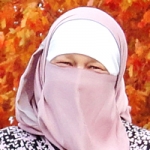
View Details / Enroll
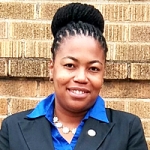
Thinking Outside the Box to Increase Breastfeeding in Communities of Colour

Mother of 6 breastfed children, Tytina is a Certified Lactation Counselor, La Leche League International Breastfeeding Peer Counselor and Program Administrator. Tytina is a Loving Support WIC Peer Counselor and Rush University Medical Center Mother’s Milk Club peer counselor. She is an International Center for Traditional Childbearing provisional Doula. She has 15 years of community-level maternal child health. Her affiliations include Chicago Region Breastfeeding Taskforce, March of Dimes, National Association of Professional and Peer Lactation Supporters of Color, Breastfeed Chicago, the United States Breastfeeding Committee, and GOLD Learning Professional Advisory Committee.
This talk is to stress the importance of breastfeeding in communities where both finances and breastfeeding rates are low. These communities tend to have the highest infant mortality rates. Breastfeeding support programs are almost nonexistent due to lack of funding. This contributes to low initiation of breastfeeding. In these communities the title lactation consultant is foreign. Breastfeeding Peer Counselors reside within these communities; however, there are no employment opportunities. These are actually environmental barriers as well. Living in a community that does not support lactation, makes infant formula appear to be the “norm” for infant feeding. If the community as a whole was aware of the importance of breastfeeding, the whole village could take a stand. Implementing free breastfeeding/mothering support groups, allowing volunteer peer counselors to come in and assist is one approach. It should not take “money” to provide free breast milk.
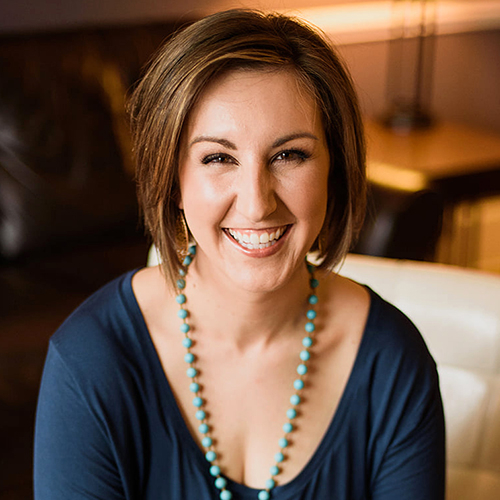
Trauma-Informed Care: A Guide to Patient Advocacy for Trauma Survivors

Mandy Irby, pronouns are she/her, is a board certified labor nurse with 13 years of experience supporting survivors of assault and trauma through pregnancy, birth planning, and at their bedside during childbirth and pregnancy loss. After experiencing her own birth trauma, she quickly learned that the birth care system is NOT centered on human rights, patient choice, and the individual experience. In 2020, Mandy made education a full-time career. She now teaches and supports parents and nurses how to better center voice, choice, and physiology in birth. It's Mandy’s mission to change birth culture so that it's parent-centered, trauma-informed, and safe for all.
Mandy enjoys teaching in-person, in whole-team learning: Peanut Ball, Labor Support Skills and Trauma-Informed Care At the Bedside workshops. She also supports local parents with small-group Spinning Babies® Parent Classes when in-person learning is safest. Mandy is also an international educator through her online, on-demand childbirth ed classes and she supports anxious parents-to-be with virtual, one-on-one trauma-informed birth strategy sessions. She’s the co-founder of Fearless Birth, Delivered, founder and owner of The Birth Nurse®, and a proud co-creator of the BRAND NEW Trauma-Informed Birth Nurse Program. As a creative educator, Mandy is also the co-author of an Amazon best-seller, Baby Got VBAC, and reaches millions of viewers each month through her engaging, tongue-in-cheek social media platforms.
When she’s not working from home, Mandy might be found at any local plant nursery adding to her, some may say, out-of-control house plant collection. She’s a serial craft starter and non-finisher, loves walking her doodle puppy, and playing in the creek with her 2 kids.
Topic: Trauma-Informed Care: A Guide to Patient Advocacy for Trauma Survivors - [View Abstract]
Thanks to the brave whistle blowers who have shared their stories, the community at large has become increasingly aware of the prevalence of sexual assault and trauma. Healthcare professionals report a lack of education specifically related to the care of assault survivors and an eagerness to learn trauma-informed care practices. A shift in care practice is nearly impossible, however, if healthcare professionals, especially nurses, hold a feeling of perceived powerlessness in their professional role. In this session, we’ll review patient advocacy definitions as they relate to a patient-centered standard of care. Participants will also learn how to provide compassionate, trauma-sensitive care to survivors of trauma while preventing further harm. Instead of feeling powerless, participants can begin to develop awareness of the unique superpowers that perinatal healthcare providers possess and receive a foundational understanding for how to be strong, confident patient advocates.

Understanding and Addressing Breastfeeding Disparities and Human Milk Inequity in Emergencies

Aunchalee Palmquist is a medical anthropologist and International Board Certified Lactation Consultant (IBCLC). She completed postdoctoral studies at the National Institutes of Health and in the Global Health Initiative at Yale University. Palmquist is Assistant Professor of Anthropology and Director of the Program for Ethnographic Research and Community Studies at Elon University. Her recent research focuses on critical biocultural contexts of breastfeeding, human milk sharing, and infant and young child feeding in emergencies. She blogs at anthrolactology.com.
Emergencies, whether natural disasters or complex humanitarian crises, often reproduce and exacerbate pre-existing health disparities. Mothers and infants within vulnerable, marginalized, and oppressed social groups are more likely to carry a disproportionate burden of perinatal morbidity and mortality resulting from emergencies as compared with those in privileged groups. Emergency response for pregnancy support, childbirth, and infant and young child feeding (IYCF-E) tends to address acute needs but often fails to support long-term and sustainable resilience to health inequalities and inequities. This presentation provides an overview of critical issues that influence social inequalities of perinatal maternal and infant nutrition in a global context, and then highlights the intersection with IYCF-E. A case studies approach will be used to illustrate key concepts. Although emergencies present numerous challenges to protecting maternal and infant health, they also avail unique opportunities to promote and support breastfeeding and human milk equity globally.


Liz Brooks is a private practice International Board Certified Lactation Consultant (IBCLC) and licensed lawyer, with expertise in criminal, administrative, non-profit, ethics, and lactation-related law. Liz offers in-home lactation consultations, and bedside care and teaching in two Baby-Friendly-designated hospitals.
She has been a leader in organizations for IBCLCs, breastfeeding promotion, and non-profit human milk banking. She authored the only textbook on legal and ethical issues for the IBCLC, and writes on health care ethics, equity, and conflict-of-interest in several books, blogs, and peer-reviewed journals.
She is a popular international conference speaker, offering practical tips with wit and wisdom for anyone who works with lactating and human milk-using families. Liz self-identifies as a cisgender hetero white woman with unearned privilege, and uses she/her/hers pronouns.
Topic: Using a Cool Head When You’re on the Hot Seat: Ethical and Legal Topics That Make Us Sweat, and How to Avoid Getting Burned - [View Abstract]
Topic: What’s Too “Friendly” for an IBCLC on Social Media? - [View Abstract]
Topic: Whiners and Deniers: Ethics and Diplomacy in Difficult Cases - [View Abstract]
It's all about the Internet! Families in 2015 want to be connected to their network of families and friends. They use Internet-accessing devices and social media to share news, gather information and seek opinions. If this is where families are ... can an IBCLC (or other healthcare provider) be there, too, without violating long-standing principles of privacy and professional ethics? Can healthcare providers engage in clinical discussion with someone on Facebook, Twitter, a chat room or a website? What about real-time webinars, or static websites, where mothers type in their clinical questions? Is texting ever permissible? Can a clinician post a picture of a client, or ask colleagues on a private listserv about a tricky case? We'll learn how the Internet is used by new families to seek and share information, and the professional risks of "friendly" clinical care by the IBCLC or HCP who joins the conversation.
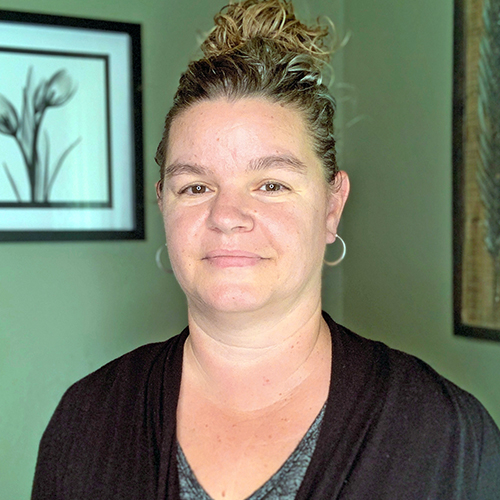
Your Responsibility to the WHO Code: Evaluating Real-World Scenarios for Compliance

Christine Staricka is a Registered, International Board-Certified Lactation Consultant and trained childbirth educator. As the host of The Lactation Training Lab Podcast, her current role focuses on training and coaching current and aspiring lactation care providers. Christine created and developed The First 100 Hours© concept, an early lactation framework designed to support lactation care providers with the knowledge and mindset they need to help families optimize early lactation. Christine worked as a hospital-based IBCLC for 10 years and has over 20 years experience providing clinical lactation care and support. She provides clinical lactation care to families at Baby Café Bakersfield and serves as its Director. Christine recently completed 6 years of service on the Board of the United States Lactation Consultant Association (USLCA.) She holds a Bachelor's Degree from the University of Phoenix. She has been married for 27 years, lives in California, and is the proud mother of 3 amazing daughters.
Topic: Tongue-Tied and Troubled: A Breastfeeding Journey at Risk - [View Abstract]
Topic: Your Responsibility to the WHO Code: Evaluating Real-World Scenarios for Compliance - [View Abstract]
The International Code of Marketing of Breastmilk Substitutes (WHO Code) exists to protect health during a vulnerable period of life. In the course of practicing health care in the service of families with babies and young children, health care workers of all disciplines will encounter situations which should be guided by the WHO Code. It is in the interest of families and health for all health workers to be aware of the WHO Code and what it requires, as well as to be able to evaluate a situation where a commercial entity is interacting with the public regarding infant and young child feeding. Using a rubric of WHO Code guidance, the participant will practice evaluating real-world case studies and determining whether or not they are in compliance with the WHO Code.







